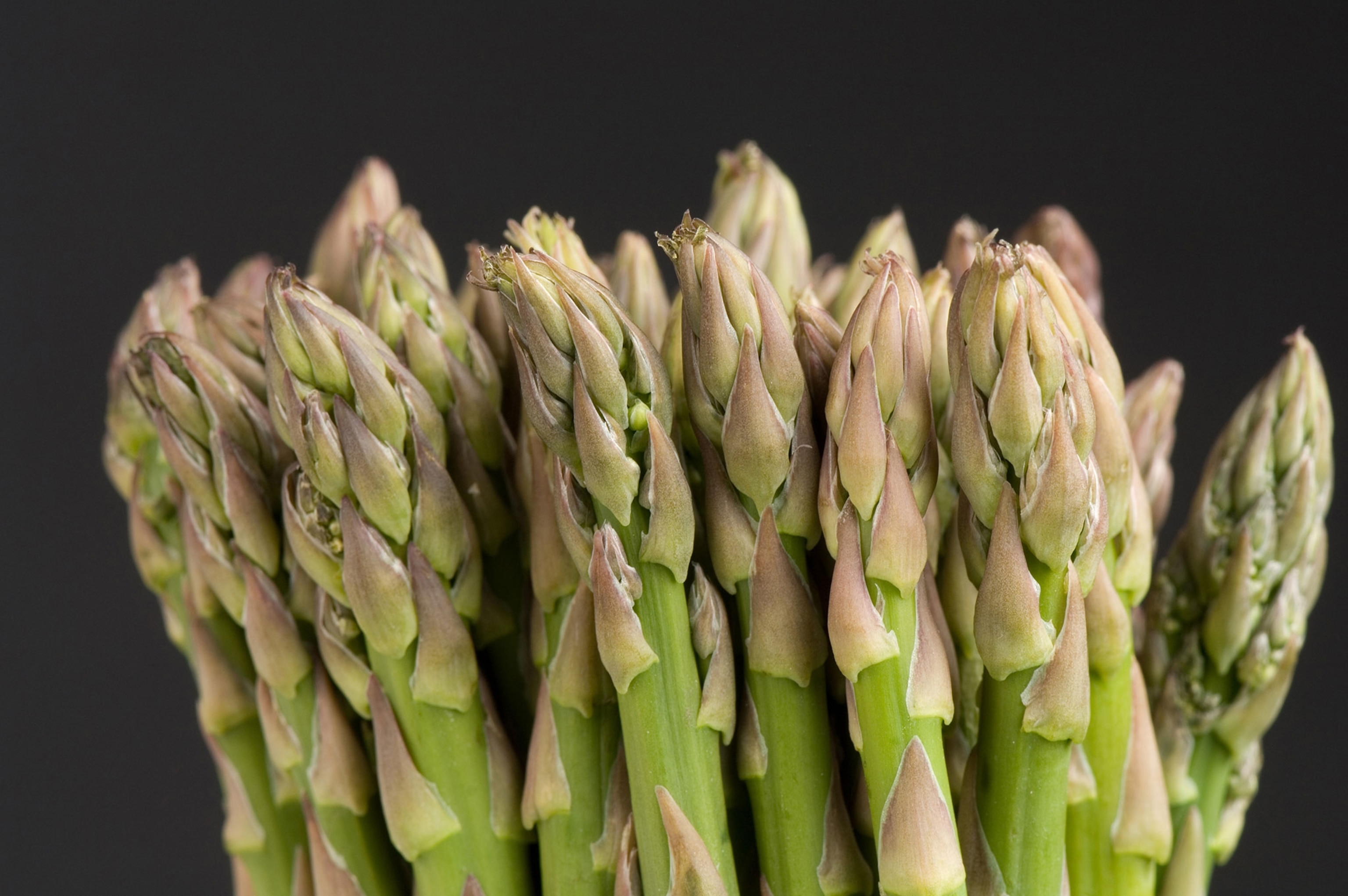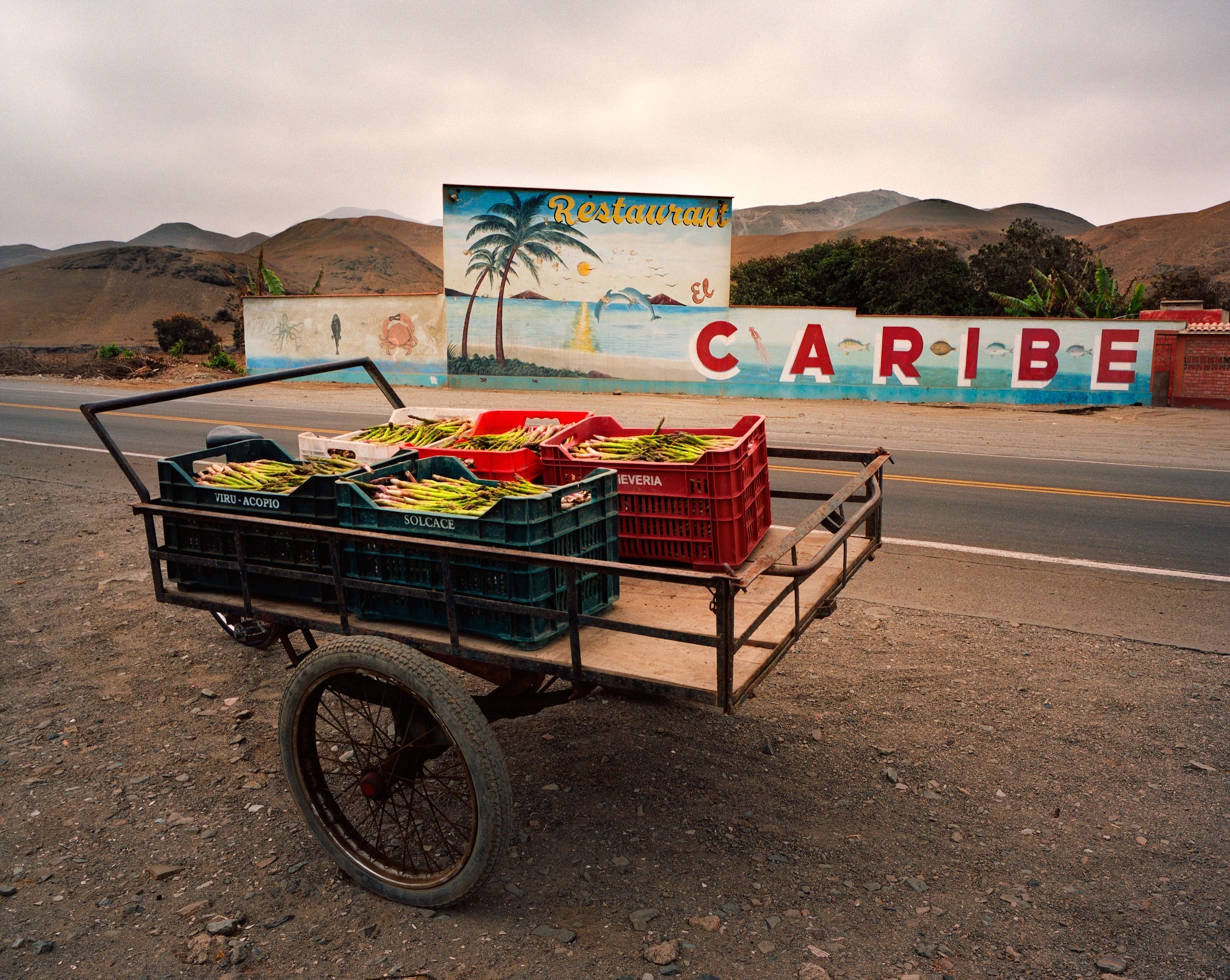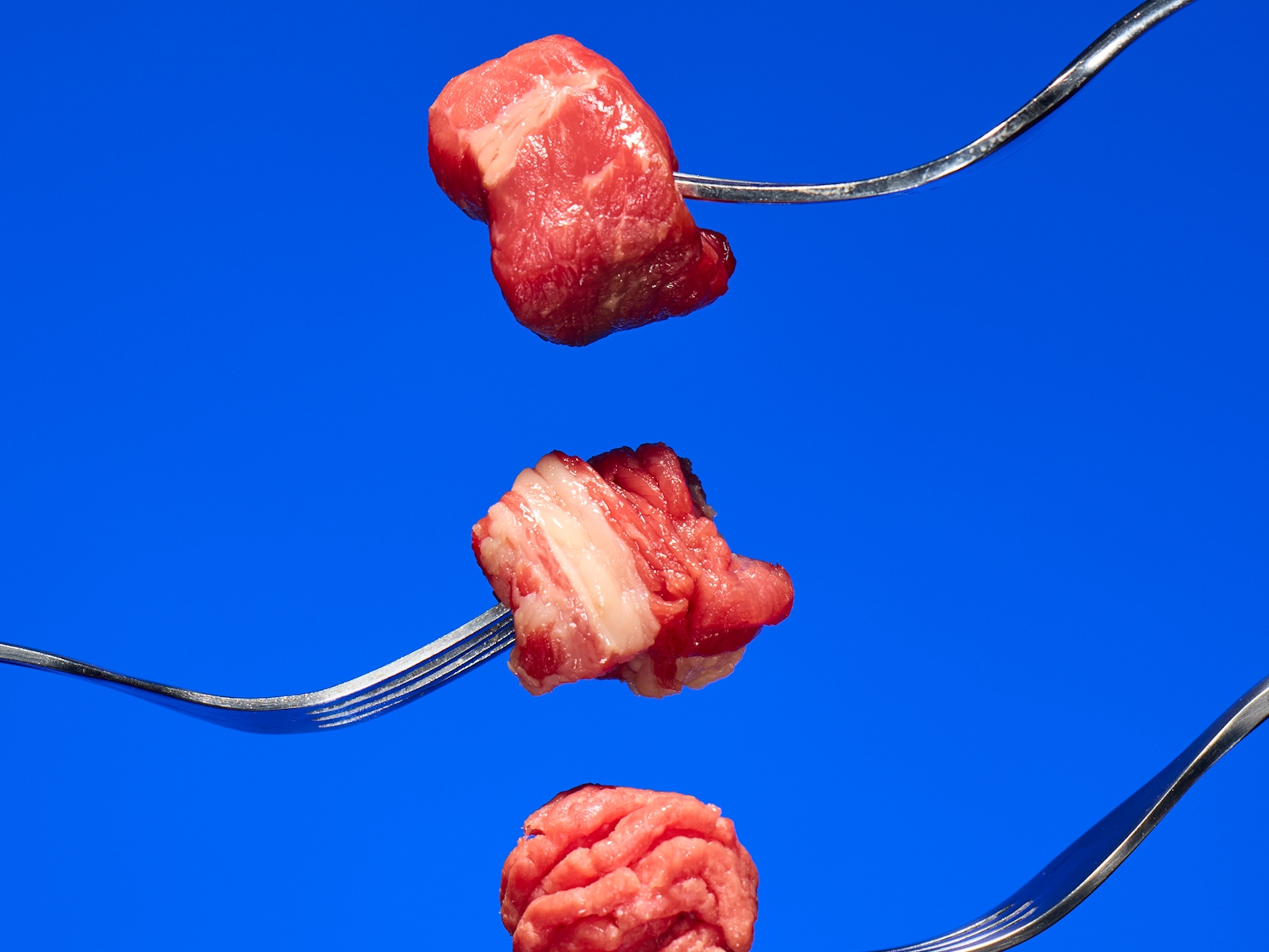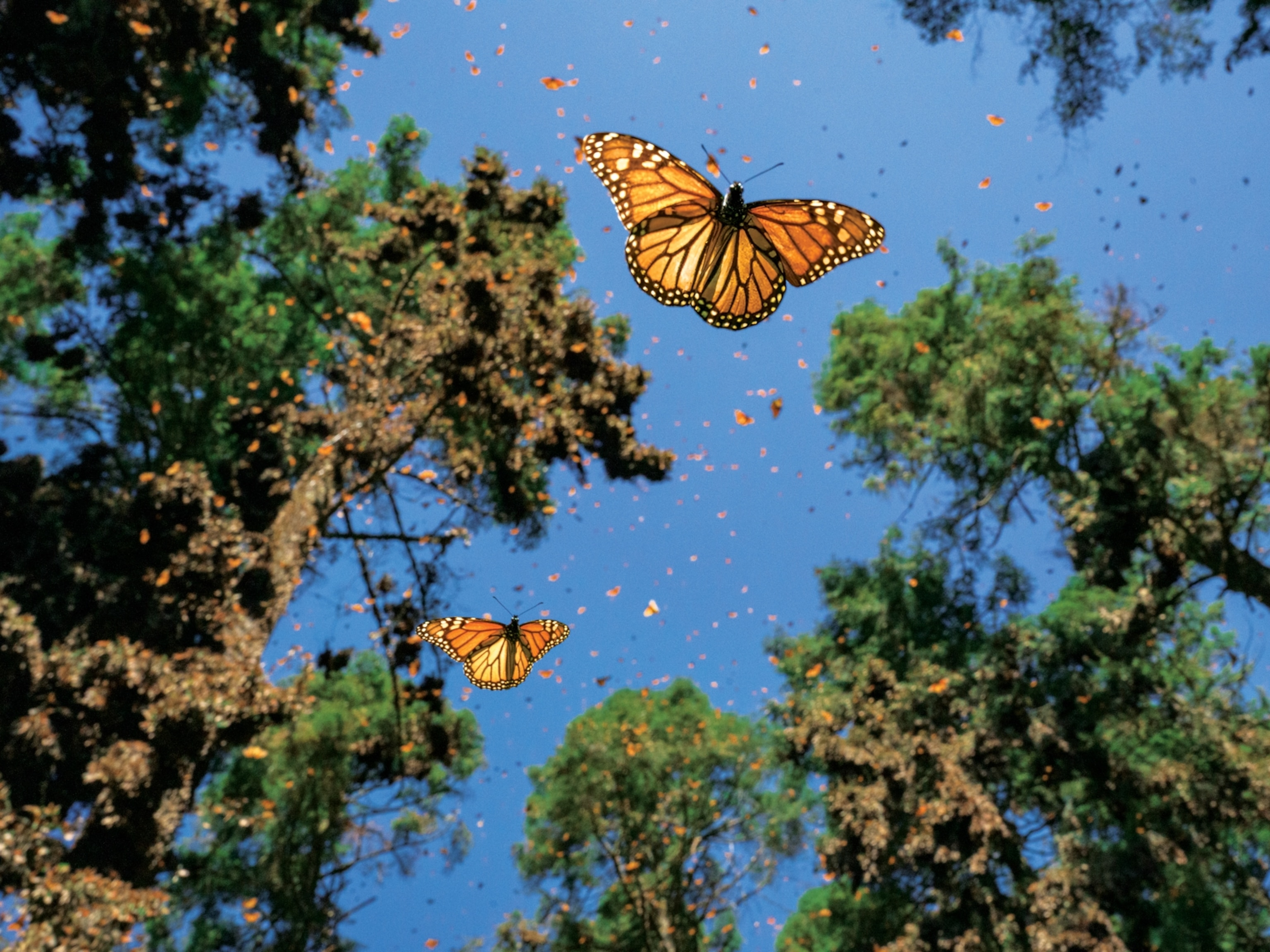
The Surprisingly Big Carbon Shadow Cast By Slender Asparagus
The debate over our diet’s impact on the climate is getting louder. Most of the noise centers around beef, which many calculations put at the top of the impact charts. But conscientious eaters are looking at the greenhouse-gas emissions associated with all sorts of food production, and scientists are coming up with a few big carbon footprints that might surprise you.
A recent study published in the Journal of Industrial Ecology looks at the climate impact of various fruits, vegetables, and animal products in the American diet.
The scientists assess total greenhouse gas (GHG) emissions from production using a unit that’s a little tricky to parse: kilograms of CO2-equivalent per kilogram of food. Because different greenhouse gases have different impact, they convert all gases to the amount of CO2 that would have the same impact. But the important thing is how they compare to each other.
Predictably, beef and lamb, at 26.45 (kg CO2-equivalent per kg of food) and 22.9, respectively, were highest. Pork and veal, at 6.87 and 7.8, were much lower. Vegetables ranged from a low of .09 (pumpkin) to a high of 1.46 (escarole and endive).

And then there’s asparagus. At 8.87, it produces six times the amount of GHG than the next-highest vegetable. That’s higher than pork and veal, not to mention chicken, eggs, and milk. Why? It’s not even something you have to plant every year.
I asked the study’s author, Martin Heller, a research specialist at the University of Michigan’s Center for Sustainable Systems, who says it comes down to transportation. “Produce that requires air freight tends to have exceptionally high GHG. This would include a number of tender fruits and vegetables.”
How many of us, when we’re trying to make responsible decisions in the produce aisle, ask if our fruit flies?
We should. “Air freighting is a lot more carbon-intensive than shipping or road transport,” says Alexander Kasterine, head of the Trade and Environment Programme at the International Trade Centre (a joint agency of the United Nations and the World Trade Organization).
The reason? Energy use. According to the U.S. Department of Agriculture, air-freighting takes 50 times the energy of shipping by sea, 33 times that of rail transport, and four times that of truck transport.

Climate-wise, transport by air is unequivocally worse than other kinds. But taking that simple fact into consideration is, predictably, complicated.
Kasterine points out that air transport needs to be evaluated in the context of other factors. If you drive a long way to the market in a gas-guzzling vehicle to buy local asparagus, your climate impact could be larger than that of the flown-in variety. And buying locally, in general, is no guarantee of minimizing climate impact. “There’s a good reason to grow grapes in California and potatoes in Idaho. Those states have a comparative advantage in terms of their climate and their soils.” Those efficiencies, he says, “more than make up for the transport emissions,” which are only about 10 percent of total climate impact as long as shipping isn’t done by air.
And, of course, climate isn’t the only consideration. It’s possible that your air-freighted produce is making a huge difference to a farmer in Asia, Africa, or South America. When you buy their products, says Kasterine, “You’re keeping people employed, you’re providing jobs – jobs that are often going to women, who are a more vulnerable sector in these rural economies.” Supporting them with purchases “is one of the best forms of development aid,” he says.
Then there’s the problem of trying to figure out whether any particular produce is air-freighted. There’s no little airplane symbol (although maybe there should be), so you have to guess. If it’s a delicate fruit or vegetable, and it comes from a long way off (produce is required to be labeled with country of origin), it’s a good bet that it’s been on a plane.
According to the Natural Resources Defense Council, some of the produce frequently flown in to the U.S. are bell peppers (from the Netherlands), blackberries (Chile), blueberries (Chile, New Zealand, and Argentina), cherries (Chile), and raspberries (Chile).
Oh, and asparagus (Peru).
So, where does that leave us? How’s a consumer to navigate the many ways our food purchases affect the world around us, in light of the complex ways they interrelate, and very imperfect information? As Kasterine says, “It’s not evident what the right choices are.”
He has a suggestion: “Relying on altruism doesn’t work to de-carbonize the economy. Tax the energy used to produce the food.” And not just in the supply chain, he adds, but in your house, when you cook, and in your vehicle, when you drive to the market. “In the absence of prices, consumers have a difficult decision,” he says. Once energy cost is reflected in price tags, buyers have a motivation to make the climate-friendly choice.
Meantime, though, we all have to bumble through, and look at our vegetables through a whole new lens.
Tamar Haspel is a food and science journalist. She can be reached on Twitter @TamarHaspel.







